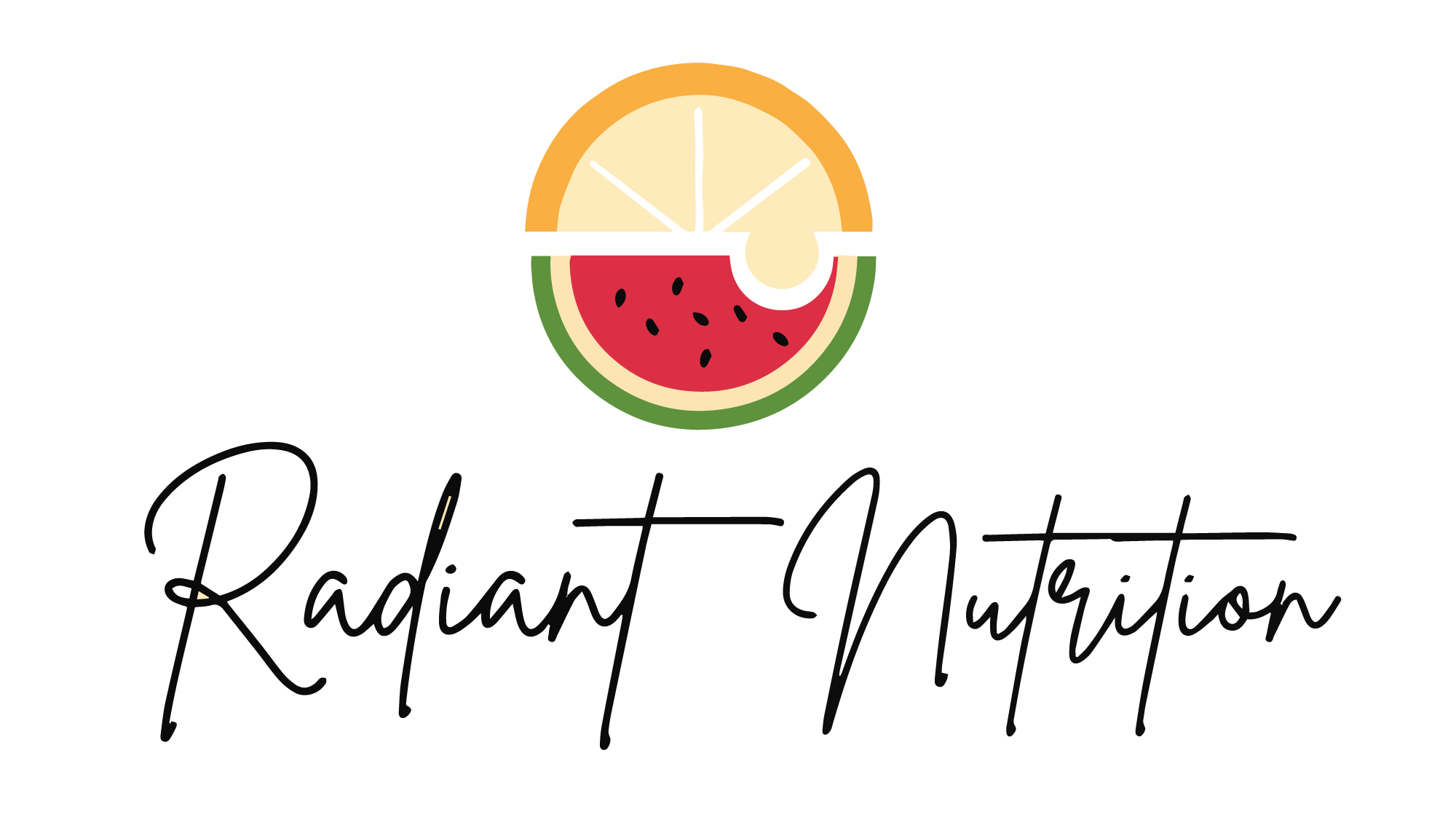Foods That Lift Your Spirits and Calm Your Nerves
Food is actually medicine for your body. While it is not a cure-all, food can have a powerful effects on your mind and body during seasons of struggle.
When you are working through a stage of life where depression and/or anxiety is a battle, it is important to turn to foods that make you feel energized and maybe even comforted. There is a lot of information out there about avoiding foods that are high in white sugar/white flour, processed meats, and butter, but I am here to say that if you are craving it, it’s okay to eat it. Avoiding foods just because diet culture or the “food police” in your head labels them as “bad” generally only increases anxiety and sometimes more intense cravings. If you feel out of control with what to do and eat when you’re anxious and/or depressed we can help you sort through how to create a better relationship with food and offer alternative different coping skills until you feel like yourself again. With that said, the following foods and associated nutrients can be beneficial when it comes to calming the body during hard seasons of life:
Protein sources
Tofu, eggs, turkey, fatty fish, & yogurt
Fruits and vegetables
Leafy greens, legumes, avocado
Nuts and seeds
Walnuts, pumpkin seeds, peanuts, sunflower seeds, cashews, & almonds
Grains
Whole wheat pasta and bread, oatmeal, and sweet potatoes
Omega-3 fatty acids: when combined with proper medication, omega-3 fatty acids have been shown to lessen the symptoms of depression and anxiety. Omega-3 fatty acids have also been linked with improved brain health
cold-water fatty fish, such as salmon, mackerel, tuna, herring, and sardines
nuts and seeds
plant oils
fortified foods
Vitamin D: low levels of vitamin D have been associated with increased symptoms of anxiety and depression
flesh of fatty fish (such as trout, salmon, tuna, and mackerel) and fish liver oils
B vitamins: higher intake of B vitamins, particularly biotin, lowers the prevalence of depression and anxiety symptoms
organ meats, eggs, fish, meat, seeds, nuts, and certain vegetables (such as sweet potatoes)
Magnesium: low magnesium intake has been associated with greater levels of depression; magnesium helps to lower cortisol levels and balance out neurotransmitters
green leafy vegetables, such as spinach, legumes, nuts, seeds, and whole grains
Zinc: linked with lowering symptoms of anxiety
meat, fish, egg, dairy products, and seafood
Fiber: helps the body release serotonin and stabilizes blood sugar levels which can aid in lessening symptoms of anxiety
fruits, vegetables, grains, beans, peas, and lentils
If you cannot seem to find a balance with food and life, contact us. We are here to help you along on your journey. Food is not meant to add stress/anxiety to your life.
Written by Trinny Duncan, Student Intern and Peggy Pratt, PhD, RDN, LDN, CEDS-C
Sources:
5 mood-boosting foods. (n.d.). Www.piedmont.org. https://www.piedmont.org/living-real-change/5-foods-to-eat-when-you-are-depressed
Akpınar, Ş., & Karadağ, M. G. (2022). Is Vitamin D Important in Anxiety or Depression? What Is the Truth? Current Nutrition Reports, 11(4). https://doi.org/10.1007/s13668-022-00441-0
Cleveland Clinic. (2022, March 18). Serotonin. Cleveland Clinic. https://my.clevelandclinic.org/health/articles/22572-serotonin
Magnesium for Anxiety: Does It Work? (2023, November 27). Cleveland Clinic. https://health.clevelandclinic.org/magnesium-for-anxiety
Mayo Clinic. (2021, January 5). How Much Fiber is Found in Common Foods? Mayo Clinic. https://www.mayoclinic.org/healthy-lifestyle/nutrition-and-healthy-eating/in-depth/high-fiber-foods/art-20050948
Mehdi, S., Manohar, K., Shariff, A., Kinattingal, N., Wani, S. U. D., Alshehri, S., Imam, M. T., Shakeel, F., & Krishna, K. L. (2023). Omega-3 Fatty Acids Supplementation in the Treatment of Depression: An Observational Study. Journal of Personalized Medicine, 13(2), 224. https://doi.org/10.3390/jpm13020224
Naidoo, U. (2016, April 13). Nutritional strategies to ease anxiety - harvard health blog. Harvard Health Blog. https://www.health.harvard.edu/blog/nutritional-strategies-to-ease-anxiety-201604139441
National Institute of Health. (2017). Office of Dietary Supplements - Biotin. Nih.gov. https://ods.od.nih.gov/factsheets/Biotin-HealthProfessional/
National Institutes of Health. (2022a). Office of Dietary Supplements - Omega-3 Fatty Acids. Nih.gov. https://ods.od.nih.gov/factsheets/Omega3FattyAcids-Consumer/
National Institutes of Health. (2022b). Zinc. Nih.gov; National Institutes of Health. https://ods.od.nih.gov/factsheets/Zinc-HealthProfessional/
National Institutes of Health. (2022c, June 2). Magnesium. National Institutes of Health. https://ods.od.nih.gov/factsheets/Magnesium-HealthProfessional/
National Institutes of Health. (2024, July 26). Vitamin D. National Institutes of Health. https://ods.od.nih.gov/factsheets/VitaminD-HealthProfessional/
Saghafian, F., Sharif, N., Saneei, P., Keshteli, A. H., Hosseinzadeh-Attar, M. J., Afshar, H., Esmaillzadeh, A., & Adibi, P. (2021). Consumption of Dietary Fiber in Relation to Psychological Disorders in Adults. Frontiers in Psychiatry, 12. https://doi.org/10.3389/fpsyt.2021.587468
Tarleton, E. K., & Littenberg, B. (2015). Magnesium intake and depression in adults. Journal of the American Board of Family Medicine : JABFM, 28(2), 249–256. https://doi.org/10.3122/jabfm.2015.02.140176
Tello, M. (2018, February 22). Diet and depression - Harvard Health Blog. Harvard Health Blog. https://www.health.harvard.edu/blog/diet-and-depression-2018022213309

